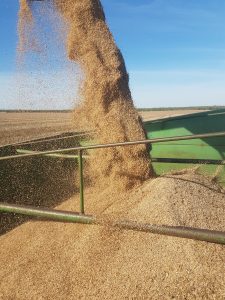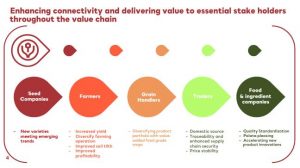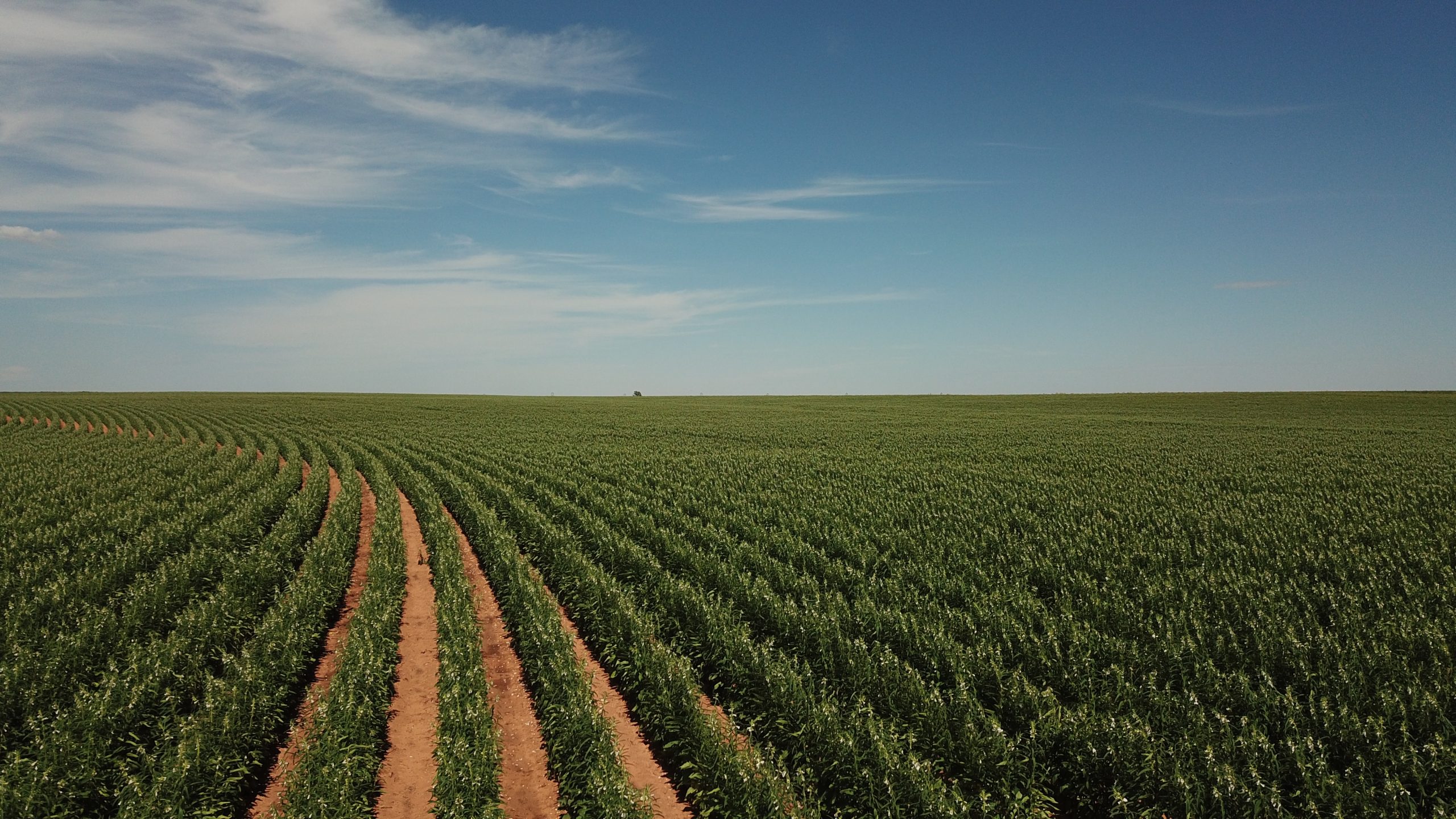Seed breeding company enhances plant-based food applications with “smarter” seeds
Large seed companies will develop new seed varieties with farmers in mind, aiming to increase yields. They don’t usually consider end uses of seeds by food manufacturers. An innovative plant-tech company is reversing that approach by working with food companies first and developing seed varieties with traits they want such as higher protein and greater nutrition. And the company, Israel-based Equinom, is doing this with non-GMO and non-gene edited breeding methods.
“We are not a traditional seed company,” says Rick Mignella, executive vice president of Equinom, which is based in Kibbutz Givat Brenner, Israel and has an office in Indianapolis, Indiana. “We are a biotech company developing new sources of non-GMO plant-based nutrition specifically tailored for the plant-based foods industry.”
Plant-based foods are a fast-growing trend in the United States with sales growing by more than 11% per year and now topping $5 billion per year. Equinom is using its leading-edge breeding methods to help plant-based food manufacturers bring more nutritious foods to market.
“Smarter Sesame”
A good example of Equinom’s innovative approach is their work with PepsiCo’s subsidiary Sabra to develop “Smarter” Sesame for the company’s hummus products. In 2014, Equinom chose to develop an advanced breeding program for sesame seeds to improve key traits that addressed weaknesses in the global market for the crop. A year later, Sabra, which controls more than 60% of the U.S. hummus market, formed an agreement with Equinom to develop seed varieties for Sabra’s sesame production. Sesame is used to make tahini, a key ingredient in hummus.

Harvested sesame seeds
According to Mignella, Sabra had a “wish list” of key traits they wanted in their sesame production. They wanted a U.S. domestic supply of the crop so they would have greater control and traceability of their supply chain. The majority of sesame production had been outside the U.S. Sabra also wanted specific oil content, flavor, and color as well as high yielding seeds so that it would be profitable for farmers. A tall order.
“Once we had the road map of where they wanted to go, we set forth on a breeding program,” Mignella says.
Equinom applied its breeding methods to develop sesame seeds for Sabra. Equinom’s seed breeding program is based on genomics and phenomics, the study of phenotypes or plant traits. Key to the breeding process is a trait algorithm, which can be used to predict ingredient compatibility to a variety of food applications and matches raw ingredients to create the desired end product.
“What we are doing is applying technologies and artificial intelligence including algorithms to make smarter choices to begin with and more accurately throughout the conventional breeding processes,” Mignella says.
Mignella quotes Equinom founder Gil Shalev who looks at a seed as the recipe.
“The recipe starts with the seed,” Mignella says. “And we just happen to be able to see and understand the ingredients in the seed. And because we can change the recipe in a non-GMO fashion and identify all these traits that exist in nature, we can bring them back into the crops at the forefront.”
Non-GMO breeding methods
Equinom emphasizes that its breeding methods are strictly non-GMO and not gene edited. “Yes, they are absolutely non-GMO. Using Equinom’s approach, there is simply no need for GMOs or edits because nature has already done the heavy lifting for us,” Mignella says.
“This is not GMO, it is not gene editing, but we improve the quality of the ingredients,” says Itai Bichler, Equinom’s chief marketing officer.
According to Mignella, Equinom’s breeding methods can develop new seed varieties in one to six years instead of the 10 to 15 years that it usually takes to develop seed varieties with certain specifications.
Equinom developed Smarter Sesame for Sabra over a four-year period. Production of Smarter Sesame is growing in the U.S. and worldwide with 50,000 acres over the past three years. This year, Smarter Sesame will be grown on 40,000 acres in Texas and Oklahoma and another 50,000 acres in eight other countries.
There are plans to expand sesame production to other U.S. states. “Generally, anywhere from Kansas south you can grow sesame. It likes warm, dry weather,” Mignella says.
For farmers, sesame has been profitable, earning them a $280 to $423 profit per acre, depending on irrigation, compared to $44 to $248 per acre for cotton, according to Equinom’s website.
Along with the profit potential, Sesame allows farmers to diversify their crop rotations as a late season crop after wheat or cotton. Sesame also requires fewer synthetic fertilizers, protects soil from erosion, and helps build soil tilth.
Another advantage to Equinom’s breeding efforts is traceability throughout the supply chain, from “seed to shelf.” Equinom recently created a certificate of traceability for its sesame production, a first in the sesame industry.
As a result of their work with Sabra, Equinom is positioned to be the market leader in sesame seed breeding.
“Our vision is to have all the sesame grown globally to be Equinom seed. That seems pretty aspirational, but it’s not all that farfetched,” Mignella says. “When you have a better performing seed it is natural for the farming community to adopt it.”
“Disrupting the whole industry”
Along with the sesame breeding project, Equinom has a partnership with Roquette, a major plant-based ingredient manufacturer, to develop new high-protein pea varieties. Roquette is investing $4 million in Equinom to support the company’s work.
Equinom has also done breeding work on soybeans to increase the protein content, which traditionally has been 35%. Equinom’s breeders developed soybean seed lines that contained nearly 58% protein. They have also worked on tofu soybeans to achieve better water retention, protein recovery, and greater nutritional value.
Equinom’s other seed breeding efforts focus on chick peas, fava and mung beans, and lentils, all for plant-based food applications.

Equinom’s breeding efforts ensure traceability throughout the supply chain, from “seed to shelf.”
And the key to Equinom’s success is its “fork to farm” approach of working with plant-based food companies and developing seed varieties based on the traits the companies want. This approach enhances the entire food value chain from seed companies and farmers to grain handlers and food manufacturers.
“With our breeding work, we keep the end product in sight all the time,” Bichler says. “If you have a better pea you have a better burger. If you have a better seed and better protein, you gain on all fronts. We are disrupting the whole industry.”





